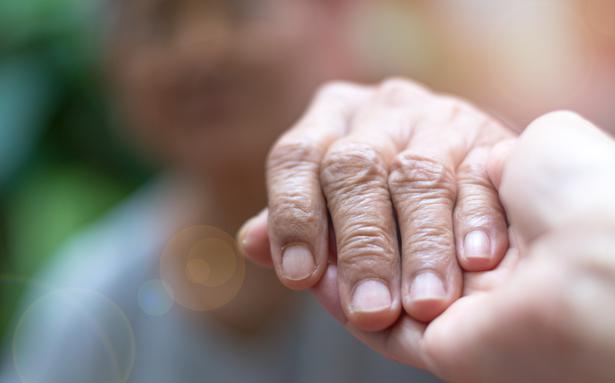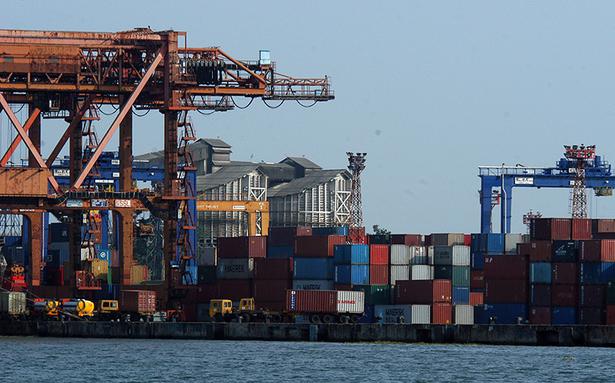Care work is vital to economies in general and India needs a strategy and action plan for improved policies
Care work is vital to economies in general and India needs a strategy and action plan for improved policies
Greater investment in care services can create an additional 300 million jobs worldwide, many of them for women. This, in turn, will help increase women’s labor market participation and advance Sustainable Development Goal (SDG) 8 (which is to promote sustainable, inclusive and sustainable economic growth, productive full employment and decent work for all).
Still “invisible” from politics.
Every year March 8th is celebrated as International Women’s Day. The immense contribution of women in all walks of life is often overlooked, unfairly appreciated and rarely rewarded. This is “particularly evident in care work – both paid and unpaid, which is critical to the future of decent work. Care work includes direct activities, such as feeding a baby or caring for a sick partner, and indirect caring activities, such as cooking and cleaning. Whether paid or unpaid, direct or indirect, care work is vital to human well-being and the economy. Unpaid care work is linked to inequalities in the labor market, but has yet to be adequately addressed in policy formulation. Paid carers, such as domestic workers and anganwadis in India, also struggle to access rights and entitlements as workers.
The importance of care work is now widely recognized and embodied in various international commitments such as the SDGs and the International Labor Organization (ILO) Centennial Declaration. Since March 2020, the demand for care services has skyrocketed. However, investments in the care economy have not kept up with the pace. This year, to mark International Women’s Day, the ILO launched its new report entitled ‘Care at work: investing in care leave and services for a more gender-responsive world of work’. The ILO is the only tripartite UN agency that brings together governments, employers and workers from 187 member states to set labor standards, develop policies and develop programs to promote decent work for all women and men.
Benefits across the board
The report highlights the importance of maternity, paternity and special care leave, which help to balance the work and family commitments of women and men throughout their lives. Additionally, it shows that jobs that provide time, income security, and space for care services such as breastfeeding enable positive nutrition and health outcomes.
Bridging the gaps in current policies and services to support childcare and elder care services will deliver the benefits of child development, aging gracefully and independent living as the population ages, and also create more and better employment opportunities, especially for women .
also read
maternity leave, child care
Maternity leave is a universal human and labor right. Yet it remains unfulfilled in all countries, leaving millions of workers with family responsibilities without adequate protection and support. India does better than its competitors by offering 26 weeks of maternity leave, as opposed to the ILO’s standard 14-week mandate, which exists in 120 countries. However, this coverage covers only a tiny proportion of formally employed women workers in India, where 89% of employed women are informally employed (according to data from ILOSTAT or the ILO’s central portal for labor statistics). While paternity leave is recognized as a way for mothers and fathers to better balance work and family responsibilities, many countries, including India, do not allow it. Globally, the average paternity leave is nine days, adding to the injustice.
Access to quality and affordable care services, such as childcare, elder care and care for the disabled, is a challenge faced by workers with family responsibilities worldwide. Although India has long mandated the provision of crèches in factories and institutions, there is limited information on their actual implementation. There is room for improvement in terms of availability, accessibility, affordability and quality. Nurse working conditions are another critical gap that needs to be addressed. Although childcare and Anganwadi workers perform vital work and childcare is recognized as professional work in advanced countries, they lack recognition as workers and do not have the required access to labor rights and entitlements in India.
Domestic workers, who are heavily reliant on Indian households, also face challenges in accessing decent work. they were ad hoc Caregivers during the novel coronavirus pandemic without proper social or health protection measures. According to government estimates from 2019, 26,000 of the 39,000 domestic workers in India are women. While important developments have extended formal coverage to domestic workers in India, such as the Sexual Harassment of Women in the Workplace (Prevention, Prohibition and Remedy) Act and the minimum wage regime in many states, further efforts are needed to ensure them decent work. Recognizing caregivers and promoting decent work for all, including domestic workers and childcare workers, are also necessary for India to achieve the SDGs, which include the principle of leaving no one behind. They, like all other workers, must enjoy basic human and labor rights and have access to fair wages, enjoy a workplace free of violence and harassment, have good working conditions and have access to social protection, among other things.
Consider it a public good
India spends less than 1% of its GDP on the care economy; Increasing this percentage would bring a wealth of benefits to workers and the wider economy. Therefore, the government, in consultation with employers’ and workers’ organizations and relevant stakeholders, needs to design a strategy and action plan for improved care policies, care services and decent working conditions for care workers. The ILO proposes a 5Rs framework for decent care work that focuses on achieving gender equality. The framework calls for the recognition, reduction and redistribution of unpaid care work, encourages care workers to be rewarded with more and decent work, and allows for their representation in social dialogue and collective bargaining. Care work should be seen as a collective responsibility and a public good.
A people-centric and inclusive recovery from the COVID-19 pandemic that benefits workers, employers and government requires greater investment in and commitment to supporting the care economy that cares about society at large.
Dagmar Walter is Director of the International Labor Organization, the Decent Work Technical Support Team (DWT) for South Asia and the Country Office for India


